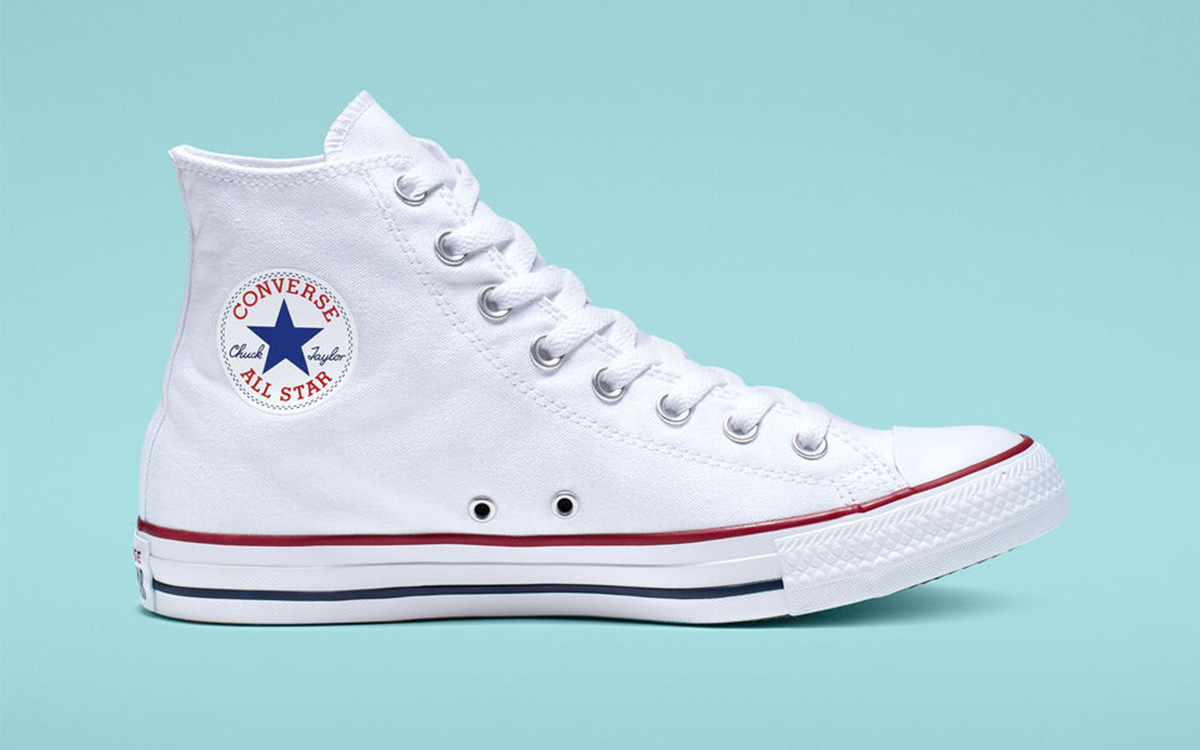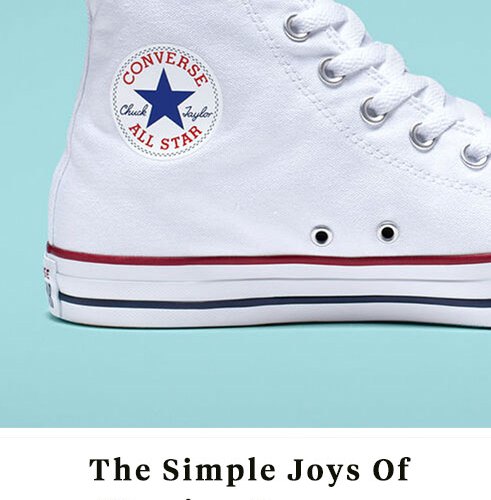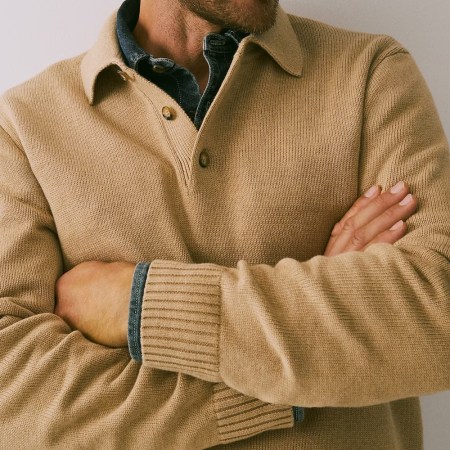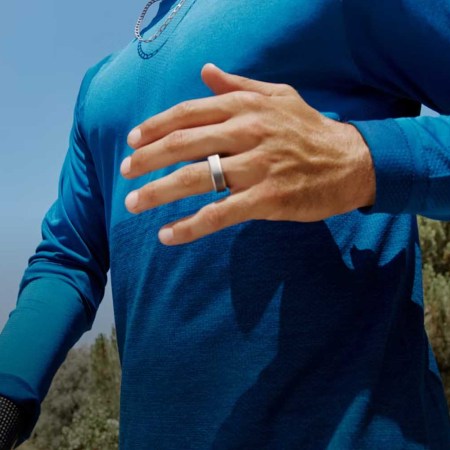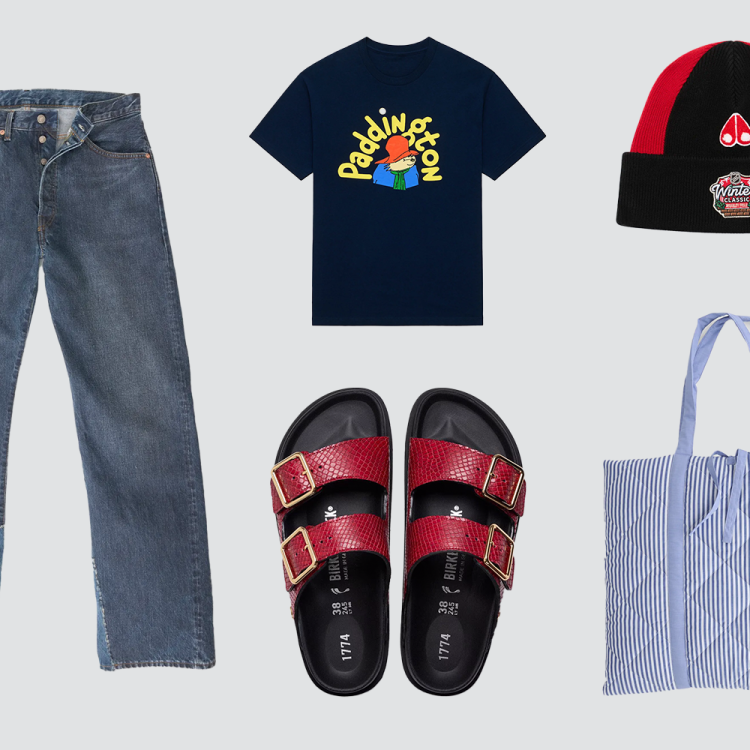Nota bene: All products in this article are independently selected and vetted by InsideHook editors. If you buy something, we may earn an affiliate commission.
For the record, Converse does make winterized versions of its iconic high tops. The Bosey MC takes its cue from 1950s waders. The Chuck Taylor MC18 could match a military-issued utility boot in terms of durability. And the East Village Explorer might looks like a normal Chuck 70, but is actually lined with favorite-sweatshirt-level fleece.
I understand and respect Converse’s endgame here. As the brand has brought materials like nubuck leather, GORE-TEX and fortified canvas into the design fold, All Star-faithful no longer have to chuck their Chucks into the closet come winter. They can rock the style year-round.
But I’m here, however brashly, to argue that none of this matters. The original Chuck Taylor All-Stars, comprised only of canvas, a flat sole, and a little bit of flair, is a perfect winter sneaker in its own right. They were good enough for the U.S. Army during WWII, for Olympians over 35 years, and for Marty McFly in his time-traveling misadventures — they’re definitely good enough for your colder commutes. Here’s why.
Boot reprieves
I generally start wearing boots in the first week of November. Sometimes even pre-Halloween if I really can’t control myself. I have a pair from Nisolo named the Andres All Weather Boot that’s done everything I’ve ever asked them to, so I love them unconditionally. That said, I ask them to do a lot — almost five straight months of five-days-a-week action. Popping Chucks into that mix helps break up my “boots uniform” (a workwear mix of denim and canvas jackets), and generally leads to me taking some risks. Like: more bomber jackets, tapered pants, graphic tees, etc. They’re a fun outfit catalyzer, basically. Especially when worn in white, which is my winter Chuck of choice: the Converse All-Star in White. So few folks around are sporting white right now (much like the dearth of white pants at this time of year, which is also a shame), so rolling into work or a watering hole with a pair of bright, effortlessly classic lace-ups is an easy way to stand out. Not to mention, they’re way lighter than boots, which brings us to …
Constitutionals
We’re huge proponents of a daily stroll here at InsideHook. Cranking a random 3,000 steps around 3:00 leads to sharper afternoons and longer lives, trust us. I recommend keeping a pair of Chucks under your desk (or just wearing them to work if your office is casual enough) for that express purpose. Lugging around two-pound boots will just keep you out in the cold for longer.
Strategic scuffing
Some maintain a post-resurrection Gandalf standard of whiteness for their Chucks. Not me. I like a slightly worn-in feel. Smear here, scratch there — it shows that the sneaks have made it through a TSA checkpoint or two, and you might have some stories to tell. Winter is the perfect time for a couple scuffs. Don’t be scared to take them out for a spin on a day where street corners are churning out gravel-slush pies. You’ll have more credibility in the long run. And if, god forbid, they are ruined, it’s just $55 for a new pair. Easy.
Mild days
A recent increase of wintry days hanging out in the 45-60°F range is probably a harbinger of the sinister reckoning headed for our planet in the next 75 years. All of us, individuals and corporations alike, should be working hard to reduce our carbon footprints. That said, goddamn is it nice to see dry pavement and blue skies on a Tuesday in early February. You ought to be prepared when those days do come, and go with a sneaker and color normally reserved for summer, to lean into the happy weather.
Workout ringer
It’s true. I’ve forgotten gym sneaks a couple times in the past and been forced to work out in a pair of Chuck Taylors. They’re surprisingly effective. You can’t bring them on the treadmill, and you probably shouldn’t test them in a HIT class, but as a spin shoe, it’s grippy and capable, and as a lifting shoe it’s oddly ideal. They’re not too tight, which allows the foot to flex and claw into the ground during movements like squats or lunges, and the flat sole offers an ideal base. It’s better, remember, to not have a cushioned shoe when lifting with the legs.
We've put in the work researching, reviewing and rounding up all the shirts, jackets, shoes and accessories you'll need this season, whether it's for yourself or for gifting purposes. Sign up here for weekly style inspo direct to your inbox.
